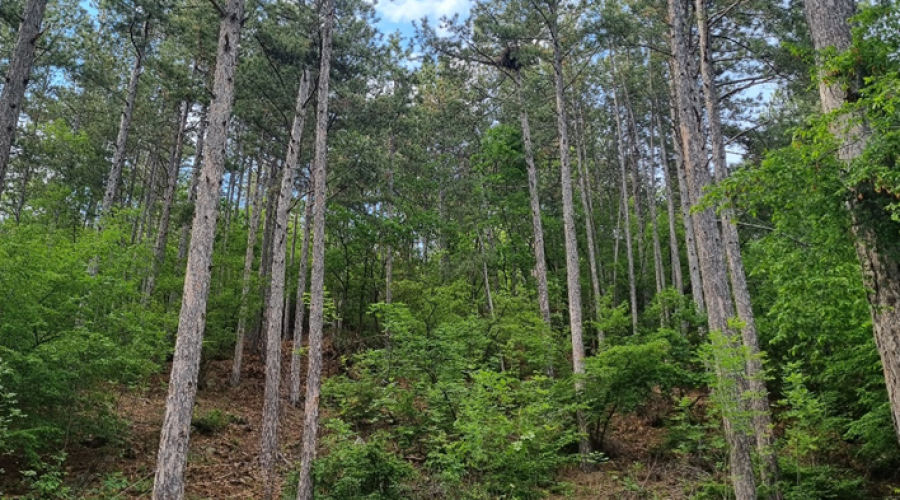Under the lead of the University Of Forestry (UF) in Sofia, the Bulgarian FIRE-RES Living Lab includes a large area situated in the Central Southern area of the country. We gathered an overview of the latest updates from Assoc. Prof. PhD Georgi Georgiev Kostov, Assoc. Prof. PhD Momchil Panayotov Panayotov, Vassil Vassilev and Elena Rafailova.

Over the past two years, the FIRE-RES Living Lab in Central Southern Bulgaria has embarked on a transformative journey, striving to enhance wildfire resilience in the region. As with any ambitious project, unexpected challenges have arisen, offering both hurdles to overcome and opportunities for growth – and this is where our conversation with the LL leaders begins.
The region appears to be lagging behind real integrated management in prevention, reaction, firefighting equipment and recovery planning. One notable revelation from the team’s interactions with their Community of Wildfire Innovation (CWI) was the fragmented approach to planning prevention and response across different departments and territories. This insight underscored the necessity for integrated, collaborative strategies to address recurring challenges effectively.
On one side, stakeholders already proved their willingness to improve the framework. However, this requires political stability at all levels, from the central government to municipal offices and their staff. With three national elections and a local one occurring within a short span, the turnover in political leadership posed logistical challenges, impacting the staff and project continuity. On a positive note, the mayors of the two largest cities of the Living Lab were re-elected, which makes it easier to guarantee the necessary solidity for the project’s next steps.
Another challenge is the availability of data. To feed the models and softwares at the core of some Innovation Actions, the team needs comprehensive datasets, which are usually not easy to access. This is where the outcomes of FIRE-RES become a crucial opportunity: in this sense, the project is allowing the LL to create a state-of-the-art for fire management. One example? The thriving collaboration with UniPD and ISA for the FIRE-RES Geo Catch app to collect images to feed fuel models.
In Bulgaria, we have no dataset for fuel models, and this is the direction where our work is going. We successfully collaborated to feed as many pictures as possible, to improve and upscale this Pan EU model.
Assoc. Prof. PhD Georgi Georgiev Kostov, University of Forestry (Sofia)

As central authorities are reportedly hesitating to modify the forest plans to include approaches to fires, FIRE-RES provides an opportunity to demonstrate new and better strategies for fire management, with invaluable benefits for the local communities.
Building the CWI, and setting the stage for the next experimentations
The first meetings with the Community of Wildfire Innovation (CWI) were successful, and the larger public is eager to see the project results. In later stages, the audience was gradually rearranged according to the complexity of the subject addressed, with a focus on experts, foresters and firefighters. Moreover, stakeholders’ conservative stance towards adopting new methodologies emphasized the importance of contextualizing innovations within existing frameworks to garner support and facilitate implementation.
While the Living Lab continues to evolve, experimental endeavours such as the controlled grazing of goats in fire-prone areas will showcase innovative ways to manage vegetation and wildfire mitigation. Despite legal hurdles (this activity is currently illegal in Bulgaria), the team obtained the special permissions to carry out the test. This prioritizes on the agenda both the advocacy for integrated landscape management and the economic assessments of different fuel management approaches.
